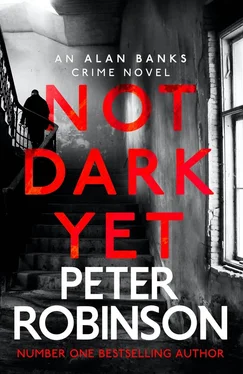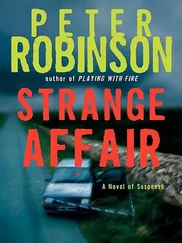‘Do you remember Vasile Lupescu?’ she asked. The name almost turned to stone on her lips.
‘Vasile? Of course. He was director from the beginning until the end.’
‘Do you know what happened to him?’
‘Nothing happened to him, my dear. It was 2009, the wake of the great financial crisis, the collapse of so many economies. The trust Claude had set up failed. Apparently, it wasn’t quite as inviolable as he had intended it to be. It was all a terrible tragedy, a very sad time for us all. But there was nothing we could do. When the orphanage closed, Vasile was just about ready to retire. So that was what he did.’
‘And now?’
‘As far as I know he lives in Purcari. It’s in the far south-east, not too far from the Ukraine border. Odessa. Good wine country. I think he has family down there.’
‘I’ve heard of it,’ said Zelda. ‘Do you ever see him?’
‘Not often. I rarely see anyone these days. You’re probably the first person I’ve spoken to in ages, except for my cleaning lady, and certainly the first I’ve had any sort of conversation with in weeks, maybe months. And we weren’t close friends, Vasile and I, even when we were both in Chișinău. The last time I saw him was when he travelled up to the city on business, and we met for lunch. But that was over a year ago. Why do you ask?’
‘I just wondered, that’s all. He was an important presence in our lives.’
‘He certainly was. He took care of all the administrative details — admissions, transitions, and everything. I’m sure he’d be very pleased if you were to tell him that. Are you planning on going to see him, too?’
‘Yes, I might do. Can you give me his address? Would that be all right?’
‘Of course. I don’t see why not.’ Buckley had a small diary on his table, and he leafed through it, then gave her an address in Purcari. Zelda glanced at her watch and realised she wouldn’t be able to make it down there until well after dark. Instead, she decided to go back to the Radisson Blu in Chișinău and try to get a good night’s sleep, if such a thing were possible after the conversation she had just had. She had one more day left in Moldova before her flight left at 5:35 the following evening, so she might as well spend it in Purcari.
At the door, they shook hands, and Buckley said, ‘I don’t know why you came here, my dear, and why you wanted to hear an old man’s ramblings, but I sense some sort of mission on your part, some desire to reacquaint yourself with your roots, make peace with the past. Is that it?’
‘Something like that,’ said Zelda, hating herself for misleading him.
‘Then let me thank you for your company and your conversation. And I wish you good luck in your quest.’
Zelda thanked William Buckley again for the books, for giving her a childhood and early adolescence, at least, then she took her leave.
Banks knew he shouldn’t have done, but he drove home from the reception when the whole thing was fast becoming an endless DJ ego trip to a soundtrack of bad nineties synth-pop and electropop music.
Brian and two fellow band members who were with him had performed a brief unplugged set earlier, including ‘Blackbird,’ one of Banks’s favourite Beatles songs, even though it was McCartney and he had always regarded himself as a Lennon man.
The music had started to go downhill soon after Brian and his friends had left. Banks said farewell to his own and Mark’s parents, all four still bravely soldiering on, and to Sandra and Sean, who were themselves just about to leave. Then he walked over to Tracy and Mark, embraced his daughter and shook her husband’s hand. Tracy thanked him for his cheque, and he could tell by her tone that it had been enough. That was a relief.
Before leaving, he took Mark aside and said, only half joking, ‘Break her heart and I’ll break your neck.’
‘Don’t worry, sir. Mr. Banks,’ Mark replied nervously, his Adam’s apple bobbing.
‘Alan,’ said Banks, patting him on the back. ‘You’re family now. But remember what I said, or you’ll have me to answer to.’
Despite having had a couple more glasses of wine on top of the pint, enough time had elapsed that Banks felt perfectly sober as he got in the car. As a cop in the Eastvale region for many years, he knew well enough that there weren’t any patrol cars out in the dale at this time of night, but he drove carefully. Not so much so that it seemed as if he were trying to drive carefully, but sticking to the speed limits and signalling properly. He made it back home in one piece, without incident.
There was a chill in the air, so instead of going out into the garden, he poured himself a glass of claret, sat in the conservatory, and put on Dylan’s Time Out of Mind to counteract the DJ’s music that lingered like the aural equivalent of a bad smell.
Burgess’s call intrigued him, and he wondered what it could be about. It was true that he didn’t have a lot on his plate at the moment, but what he did have, the Blaydon case, had become much more complex and frustrating over the past few days.
A crooked property developer called Connor Clive Blaydon and his factotum Neville Roberts had been found murdered by Banks and DC Gerry Masterson in the swimming pool area of Blaydon’s mansion just over a week ago. The post-mortem revealed that both had been shot and that, while Roberts had died of his wound, Blaydon had subsequently been sliced open from the groin to the breastbone and his body dumped in the pool. Technically, he had drowned to death because the bullet hadn’t hit any major organs and he had been using his hands to hold his intestines inside rather than to swim to safety.
The major suspect, Leka Gashi, a member of the Shqiptare, the Albanian Mafia, was a ‘business partner’ of Blaydon’s. The ‘business’ included money laundering and county lines drug dealing, two activities that could easily result in violence. The MO matched Gashi’s style, too. He was suspected of being behind the murder of a Leeds dealer called Lenny G, also gutted, who had previously managed a county line.
There was no clear motive, but Gashi and Blaydon were old partners in crime. Gerry had recently discovered that the two had met in Corfu some twenty years ago, much earlier than she had originally thought. Blaydon had owned a villa there since about 2002, and he had kept his yacht, the Nerea , moored at a marina near Kavos for a few years before that. A falling-out among thieves was not unusual, in Banks’s experience.
Because Gashi and his cronies had an alibi and were now thought to be hiding out in the Albanian countryside, the case would have been languishing in limbo until they found him, as they had no other leads. But just a couple of days ago a cache of MiniSD cards and a wad of cash amounting to £30,000 had been found hidden in a special compartment at the back of the wardrobe in the factotum’s cubbyhole. Apparently, what none of the guests at Blaydon’s famous parties had realised was that several of the bedrooms were fitted with minicams, which were motion- or sound-activated. This discovery, of course, raised the possibility that it was Neville Roberts, and not Blaydon, who was the intended victim. On further investigation, it turned out that Roberts used to be an audio and video technician until he was jailed for his part in the illegal surveillance of a client’s business rival.
DI Annie Cabbot and DC Gerry Masterson, Banks’s ‘team,’ were patiently going through and logging the material on the cards. So far, they had found that Roberts’s victims included judges, a local MP, one ex-chief constable, a pop singer, an American evangelist keen to make property investments, an award-winning film director, a bishop, a premier league footballer and a Scottish rugby international, among others. No royalty appeared to be involved, except a minor baronet, who didn’t really count. All had enjoyed Blaydon’s parties, fuelled by vast amounts of alcohol and cocaine and the loving attentions of hordes of beautiful young women, many of them probably too young.
Читать дальше












